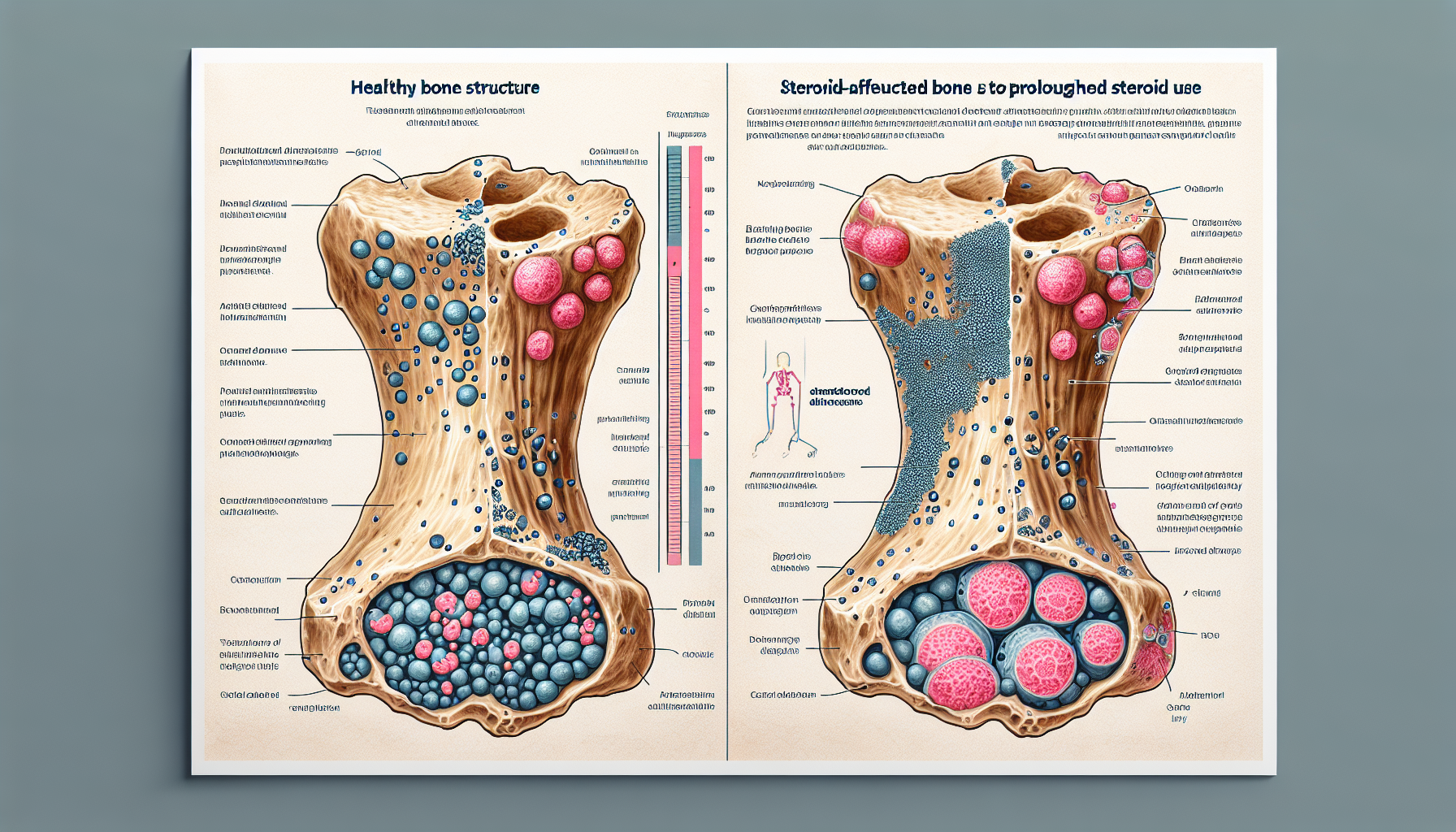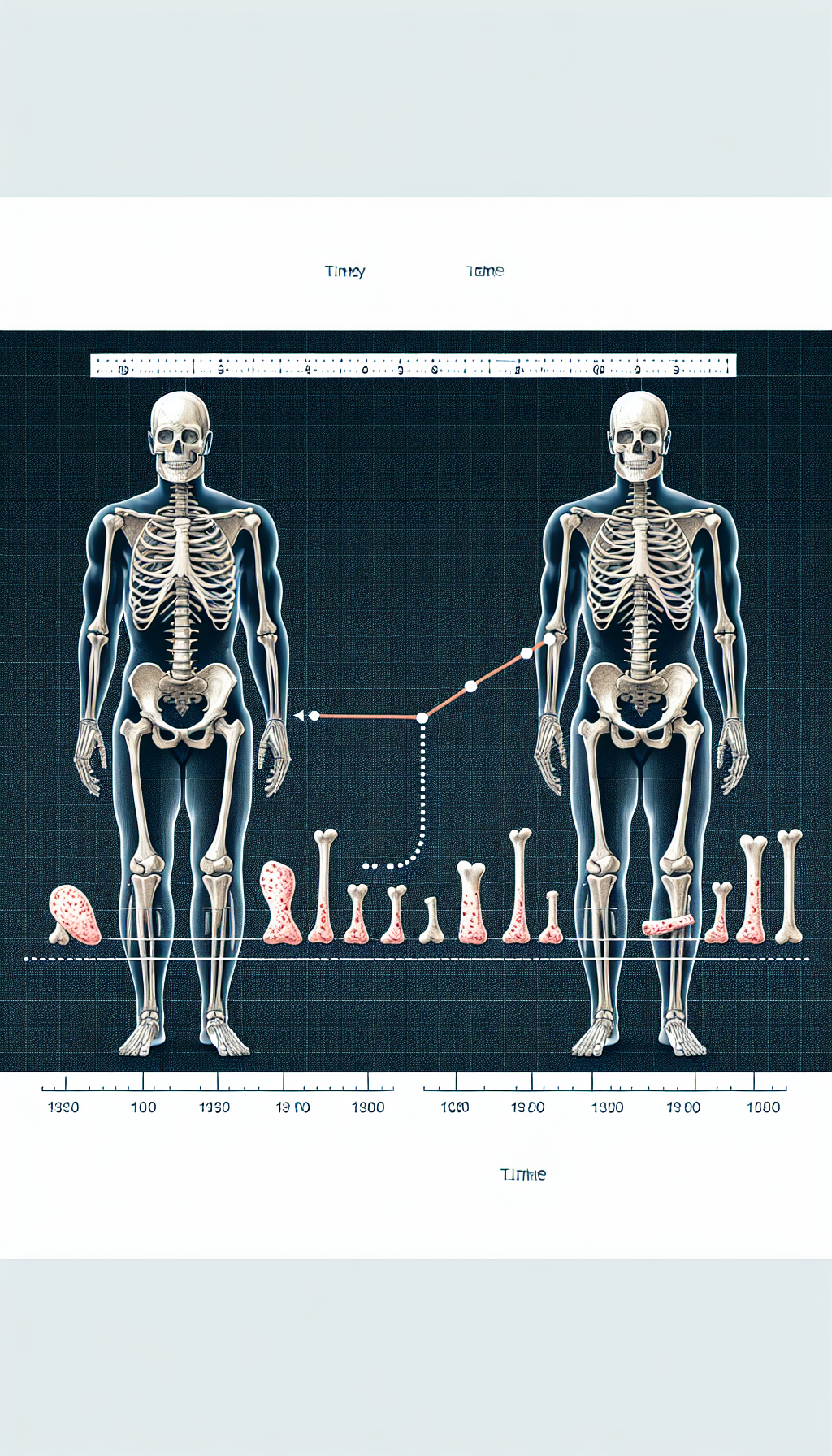Steroids, also known as corticosteroids, are a class of medications widely used to treat a variety of conditions, including autoimmune diseases, allergies, and inflammation. While they are effective in managing symptoms and improving quality of life for many patients, their impact on bone health is a concern that requires careful consideration and management.
Bone health is a critical aspect of overall well-being, providing structural support for the body, protecting vital organs, and serving as a reservoir for minerals. Maintaining strong bones is essential for preventing osteoporosis and fractures, which can significantly affect a person’s mobility and independence. For more detailed information on bone health, readers can visit Avix Health’s Bone Health section.
The Role of Steroids in Bone Metabolism
Steroids can influence bone metabolism through several mechanisms. They can reduce the absorption of calcium in the intestines, decrease gonadal hormone production, and increase the excretion of calcium by the kidneys. Furthermore, steroids can affect the bone remodeling process by inhibiting osteoblast function and promoting osteoclast activity, leading to an imbalance that favors bone resorption over formation.
Short-Term and Long-Term Effects on Bone Density
In the short term, steroid use can lead to a decrease in bone formation and an increase in bone resorption, which may result in a rapid decline in bone density. Over time, prolonged use of steroids can contribute to the development of osteoporosis, a condition characterized by weakened bones that are more susceptible to fractures.
To mitigate these effects, it’s crucial to employ strategies such as adequate calcium and vitamin D intake, regular weight-bearing exercise, and monitoring of bone density. Articles such as Building Strong Bones in Childhood to Prevent Future Issues highlight the importance of early bone health management.
Factors Influencing Steroid-Induced Bone Damage
Several factors can influence the degree of bone damage due to steroid use, including the dose and duration of steroid therapy, the underlying condition being treated, and individual patient factors such as age, sex, and lifestyle. Higher doses and longer durations of steroid use are generally associated with greater bone loss.
For those seeking alternatives to dairy for calcium intake, especially if lactose intolerant, Dairy Alternatives for Lactose Intolerant Individuals Seeking Calcium provides valuable insights.
Preventive Measures and Treatment
To prevent steroid-induced bone loss, healthcare providers may recommend a variety of measures, including:
- Calcium and Vitamin D Supplementation: Ensuring adequate calcium and vitamin D intake is essential for maintaining bone density. The role of these nutrients in post-fracture bone healing is well-documented in articles like Role of Calcium in Post-Fracture Bone Healing.
- Lifestyle Modifications: Engaging in regular weight-bearing and muscle-strengthening exercises can help improve bone strength and balance, reducing the risk of falls and fractures.
- Medication Management: In some cases, medications such as bisphosphonates or selective estrogen receptor modulators (SERMs) may be prescribed to help protect bone health.
- Monitoring: Regular bone density tests can help detect changes early and adjust treatment plans as necessary.
External resources that provide further support on these preventive measures include:
- International Osteoporosis Foundation: Offers comprehensive resources on bone health, including prevention and treatment of osteoporosis.
- National Osteoporosis Foundation’s Exercise Recommendations: Details safe and effective exercises for bone health.
- The Endocrine Society’s Clinical Practice Guidelines: Provides guidelines on the management of steroid-induced osteoporosis.
Conclusion
Steroids have a significant impact on bone health, and understanding their effects is crucial for preventing and managing bone density loss. By implementing preventive measures, monitoring bone health, and exploring treatment options, individuals on steroid therapy can mitigate the risks associated with bone loss. A proactive approach to bone health is essential for maintaining a strong skeletal system and preventing future complications.
For a more comprehensive understanding of how lifestyle factors can influence bone health, including the role of hydration and electrolyte balance, readers are encouraged to explore the wealth of resources available at Avix Health and through specialized external sources dedicated to bone health and osteoporosis prevention.



